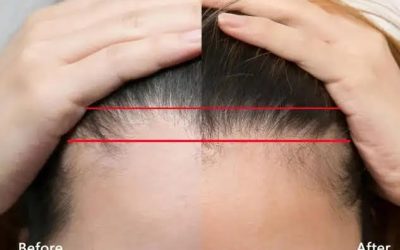Studies show that younger generations, specifically millennials or those born between the early 1980s and early 2000s, are losing their hair much earlier than older generations. Reports indicate that hair specialists are seeing a rise in the number of people in their late teens or early 20s who come to them for hair loss problems. Additionally, more women in their 20s are visiting dermatologists and trichologists for hair conditions which typically surface in middle-aged females.
What’s Causing Hair Loss in Millennials?
Specialists believe that stress is one of the top reasons why younger generations are losing their hair earlier. According to a study in the US, as compared to generations before them, millennials are experiencing extreme stress, either from school or from work.
From having ‘tiger moms’ and rigorous academic requirements to being in high pressure work environments, some of those belonging to Generation Y, another term for the millennial generation, are struggling to cope with the stress they are going through.
What exactly does stress have to do with hair loss? Research has shown that stress triggers hair loss. Oxidative stress, known for its integral role in the ageing process, triggers the early onset of hereditary or genetic hair loss known as androgenetic alopecia or pattern baldness, according to a study. Males usually experience androgenetic alopecia in their 30s; females start seeing signs in their 40s. However, recent studies show that, due to stress, balding and hair thinning are being observed in millennials who are just in their 20s.
Furthermore, exposure to extreme stress for long periods of time disrupts the normal hair growth cycle resulting in telogen effluvium. In this condition, the growth phase for a large number of hair prematurely ends. The affected hairs then enter the resting phase and eventually fall out. Hair loss due to telogen effluvium is usually temporary. It stops when stress is eliminated or managed better. A full head of hair grows after six months with the help of medication. However, when the person repeatedly experiences high levels of stress, the condition can turn into chronic telogen effluvium, a severe form of the condition, which may lead to permanent hair loss.
For some people, stress causes them to pull out their hair. This disorder is known as trichotillomania. Meanwhile, there are also those who experience alopecia areata, believed to be an autoimmune disorder wherein hair falls out because the immune system attacks the follicles. While stress does not cause alopecia areata, it is noted to exacerbate the problem.
Aside from stress, dietary choices also contribute to the hair loss experienced in younger generations. It is no secret that, in recent years, vegetarian and vegan diets have become popular among more people, including millennials. While these diets are not bad, low protein consumption, which usually happens for those on these types of diet, is not good for the hair. The hair needs protein to stay healthy and continue growing. When protein intake is low, hair growth stops. Similarly, diets low on zinc, vitamin D and other nutrients essential for hair growth may also lead to hair shedding.
Excessive hair treatments like dying and bleaching as well as hair styling practices like tight ponytails and frequent use of hair extensions also contribute to the problem. These things affect the hair follicles, weakening or putting tension on them. When done excessively or repeatedly, hairs break or fall out. If these hair styling habits do not change, follicles can become scarred and result in permanent hair loss.
Should Millennials be Concerned About Hair Loss?
According to some experts, the rise in the number of millennials experiencing hair loss does not conclusively mean that members of Generation Y are more prone to premature hair loss than their parents or grandparents.
It could be the case that millennials are just more conscious about their appearance, thereby making them more aware of how their hair looks. They immediately notice if their hairline is receding or if their hair is thinning.
Certain experts also say that some members of the older generations may have had noticed hair loss at an early age, just like members of Generation Y, but simply chose to ignore it. On the other hand, millennials are taking a more proactive approach, reaching out to specialists like dermatologists, about their receding hairline or thinning hair. On top of being proactive, millennials, with the help of technology, may be more knowledgeable about the options available for them to prevent or address hair loss.
In summary, hair loss in teens and young adults does happen. Hence, it is important for millennials to know what measures they can take for them to avoid losing their hair early. Furthermore, they should be made aware that there are specialists who can help them effectively address their hair loss problem.
Are you a millennial worried about hair loss? Call us at 01 679 3618 and schedule an appointment with our trusted dermatologist or trichologist.
—
Photo by dollen 



